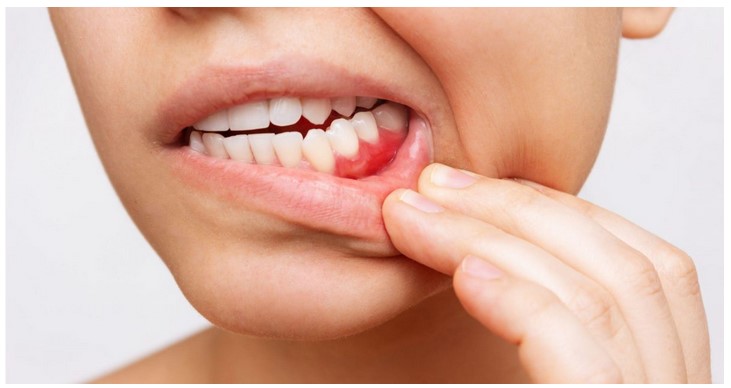
Gum bleeding is a common dental issue that can be caused by a variety of factors. It can be a sign of gum disease, an infection, or even a reaction to certain foods. In some cases, it can be a sign of something more serious. In this article, we will discuss the common causes of gum bleeding and provide some tips on how to take care of your gums and prevent further bleeding. We will also discuss when to seek medical attention for gum bleeding.
What Causes My Gums to Bleed and How Can I Prevent It?
Bleeding gums can be caused by a variety of factors, including poor oral hygiene, gingivitis, periodontitis, and certain medications. Poor oral hygiene is the most common cause of bleeding gums. When plaque and tartar build up on the teeth, it can irritate the gums and cause them to become inflamed and bleed. Gingivitis is an early stage of gum disease that is caused by bacteria in the mouth. Periodontitis is a more advanced form of gum disease that can cause the gums to recede and bleed. Certain medications, such as blood thinners, can also cause the gums to bleed.
Fortunately, there are steps that can be taken to prevent bleeding gums. The most important step is to practice good oral hygiene. This includes brushing your teeth twice a day with a soft-bristled toothbrush and flossing daily. It is also important to visit your dentist regularly for professional cleanings and checkups. If you are taking any medications that may cause your gums to bleed, talk to your doctor about alternative medications or treatments. Finally, if you have any signs of gum disease, such as red, swollen, or bleeding gums, it is important to seek treatment from your dentist as soon as possible.
Dental Care Tips for Preventing and Treating Bleeding Gums
Good oral hygiene is essential for preventing and treating bleeding gums. Here are some tips to help you maintain healthy gums:
1. Brush your teeth twice a day with a soft-bristled toothbrush. Make sure to brush your teeth for at least two minutes each time.
2. Floss your teeth at least once a day. Flossing helps remove plaque and food particles from between your teeth and along the gum line.
3. Use an antibacterial mouthwash to help reduce plaque and bacteria in your mouth.
4. Avoid smoking and chewing tobacco, as these can irritate your gums and increase your risk of gum disease.
5. Visit your dentist regularly for check-ups and professional cleanings.
If you already have bleeding gums, there are some additional steps you can take to help treat the condition:
1. Use a soft-bristled toothbrush and brush your teeth gently.
2. Use a toothpaste that contains fluoride to help strengthen your teeth and gums.
3. Rinse your mouth with a saltwater solution several times a day to help reduce inflammation and promote healing.
4. Use an antibacterial mouthwash to help reduce plaque and bacteria in your mouth.
5. Apply a topical antiseptic to your gums to help reduce inflammation and promote healing.
6. Visit your dentist for a professional cleaning and to discuss other treatment options.
By following these tips, you can help prevent and treat bleeding gums. Remember to practice good oral hygiene and visit your dentist regularly for check-ups and professional cleanings.
Conclusion
It is important to take care of your gums and teeth to prevent gum bleeding. Regular brushing and flossing, as well as regular dental check-ups, can help to keep your gums healthy and prevent gum bleeding. If you experience gum bleeding, it is important to visit your dentist to determine the cause and receive the appropriate treatment. With proper dental care, you can keep your gums healthy and prevent gum bleeding.